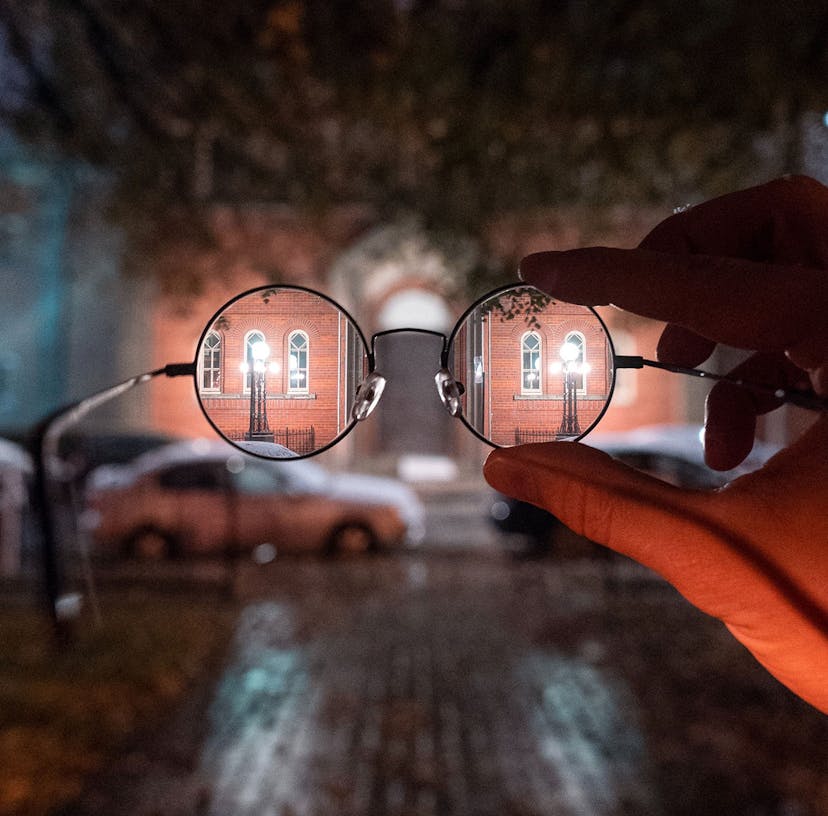
It's a new day, your cataract surgery went well, and you're eager to rest and let your eye heal so you can see the improvements in your vision. But you're wondering, "What if I didn't apply my eye drops the way my ophthalmologist instructed me to?" Or perhaps you have forgotten to use your eye drops for a day and are concerned about the risks.
After surgery, it is very important that you listen to your ophthalmologist's post-operative care regime/instructions. Generally, self-care would include the use of eye drops after surgery. These drops are a pure catalyst for recovery, it helps aid in avoiding infections and controlling inflammation as well as ocular (eye) pressure. In this article, we will learn about the potential risks of not abiding by the recommended regimen for eye drops post-cataract surgery.

Delayed Healing
Following cataract surgery, of the primary motives that eye drops are administered is to speed up the healing process. Usually, the drugs found in these drops work to minimise inflammation and support healthy tissue regeneration. The healing process can take longer if these eye drops aren't used regularly. This may lead to delayed discomfort, hazy vision, and a prolonged healing process.
Increased Risk of Infection
A tiny incision made during cataract surgery leaves the eye vulnerable to infection. Antibiotics or antiseptics are frequently included in eye drops and are recommended following surgery to help avoid infections. If you don't use these eye drops, you face a risk of getting an infection, which if untreated can cause redness, inflammation, discharge, and even impairment of eyesight. If the condition is serious, extra medical treatment can be necessary, such as antibiotic injections or oral drugs.
Excessive Inflammation
Following cataract surgery, inflammation is a typical occurrence. Anti-inflammatory eye drops are recommended to minimise swelling and avoid problems. If you don't use these eye drops, the inflammation can continue or get worse, which would be uncomfortable and possibly interfere with your ability to restore your vision.
Delayed Healing
Proper use of eye drops can help the eye heal faster and more efficiently. By skipping the drops, the healing process may be delayed, leading to a longer recovery time.
Potential Vision Complications
Failure to use prescribed eye drops can lead to complications that might affect your vision. For example, uncontrolled inflammation could impact the clarity of your vision during the recovery period.
Increased Discomfort
Eye drops can provide relief from post-operative discomfort and irritation. Skipping them might lead to increased eye discomfort and dryness.
Suboptimal Surgical Outcomes
Cataract surgery aims to improve vision and clarity. Not following the post-operative care plan, including using prescribed eye drops, may compromise the final outcome and potentially reduce the benefits of the surgery.
Corneal Edema
Corneal edema is swelling of the cornea, which can occur after cataract surgery. Eye drops often help in reducing corneal edema and ensuring better vision outcomes. Skipping the drops might exacerbate this condition.
Increased Intraocular Pressure
Increased intraocular pressure (IOP), commonly known as high eye pressure, may occur. Eye drops are frequently recommended to help regulate and lower ocular pressure. If these drops are not used as prescribed, the eye pressure may rise, which could cause glaucoma or injury to the optic nerve.
Can I Use Refresh Eye Drops After Cataract Surgery?
You can use Refresh eye drops after cataract surgery, but it's important to follow your surgeon's guidance on when and how to use them. Typically, Refresh eye drops, which are lubricating and preservative-free, are safe and beneficial for soothing dry, irritated eyes—a common experience after cataract surgery. Your surgeon may recommend starting them shortly after the procedure, once the initial post-operative medications, such as antibiotic or anti-inflammatory drops, are being used regularly. Using Refresh drops can help relieve dryness and discomfort, promoting a more comfortable recovery.
The best time to use Refresh eye drops is usually between doses of your prescribed medicated eye drops or as needed throughout the day when your eyes feel dry or irritated. Because cataract surgery can temporarily disrupt the tear film and lead to dry eyes, these lubricating drops provide much-needed moisture, helping to protect the eye's surface and promote healing. It's important to wait a few minutes between applying Refresh drops and any other prescribed drops to ensure that each medication is fully absorbed and effective. Always consult your ophthalmologist for personalized advice on the timing and frequency of using Refresh eye drops in your post-surgery care routine.
Substandard Visual Achievements
The main objective of cataract surgery is to enhance your vision. To get the best results from your eye drops, you must adhere to the recommended routine. Failure to take the prescribed eye drops could impede healing, lead to issues, and perhaps affect the outcome. Additionally, to get the most out of your surgery, it's essential to do as your ophthalmologist advises.
For a successful and trouble-free recovery from cataract surgery, it is crucial to use the prescribed eye drops as directed. Moreover, these drops assist with managing ocular pressure, reducing inflammation, preventing infections, and promoting healing. If the prescribed eye drops are not used, healing may take longer, the danger of infection will increase, there can be more inflammation, the eye pressure will rise, and the visual results may be less than ideal. It is crucial to follow through with your ophthalmologist's instructions and to use the prescribed eye drops in order to achieve the best eyesight following cataract surgery and a speedy recovery. Consult your ophthalmologist for advice if you have any questions or problems utilising the eye drops.
Find out more by Speaking to our team









